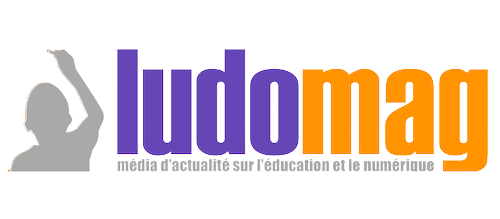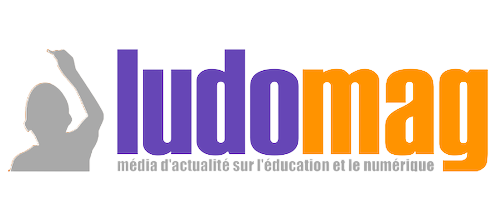During LUDOVIA#BE, held in Spa, Wallonia from October 22 to 24, 2024, we encountered several « gems. » In the coming weeks, you will find a selection of articles and short videos that we hope will inspire your current and future projects.
🎙️ Interview: Today, we aim to inspire you with insights from Anas Ahajjam, Assistant Professor at Haute École Francisco Ferrer, and Ibrahim Bouabbouz, School Principal and Educational Coordinator for the City of Brussels.
They discuss AI in education, best practices, and the framework to ensure responsible use for both teachers and students.
« Both our institutions are part of the public education system of the City of Brussels. As part of our digital strategy at the Haute École, we have introduced an AI usage charter that highlights two main areas of intervention: raising awareness about AI, providing AI training, and promoting responsibility in the use of AI, » explains Anas.
To support this initiative, they have developed a guide called the « Code Book » for students, which also helps teachers understand the processes students follow to complete their work.
The guide starts by prompting a fundamental question: « Where do I stand in relation to my learning activity? » says Anas.
The guide distinguishes between authorized, limited, and prohibited uses of AI.
Why prohibit AI in learning? For foundational learning where deep understanding is crucial, relying on AI may not be appropriate.
Regarding « limited uses, » Anas explains that these include marginal tasks like correcting or translating text. « However, the context matters. For instance, in language instruction, using AI translation tools may be prohibited, » he adds.
« It is up to the teacher to define the permitted uses based on the learning context so that students understand what they are allowed to do, » he emphasizes.
After this initial classification, the next step is referencing.
The « Code Book » serves as a practical guide cataloging all possible uses of AI, including text generation, image creation, data tables, programming, and more. Each use is assigned a code that students must include when submitting their work.
For example, « AI-generated text » corresponds to the code (IA-1-text).
« Students will begin their paragraph with two slashes (//) and end it with the corresponding code (IA-1-text), » Anas explains.
Simultaneously, Anas’ team is developing a digital tool to analyze students’ documents, evaluate the coherence of their work, and track how frequently they use AI.
« This provides valuable insights for teachers and enables targeted remediation with students, » he adds.
Currently, this tool is still in the experimental phase and is being co-developed with teachers.
« The goal is to extend this approach to secondary education because it is both important and urgent, » says Ibrahim.
According to him, and as research indicates, 86% of students already use AI, and it is only a matter of time before that figure reaches 100%.
The « Code Book » is founded on a relationship of trust regarding AI use. Currently, there is uncertainty for both teachers and students. The message is: « You may use AI in certain contexts, but there will also be times when you are required to demonstrate your oral, written, and drafting skills without AI, » explains Ibrahim.
He draws a parallel with the introduction of graphing calculators, which initially raised concerns but are now indispensable.
For more information: www.he-ferrer.eu/charte-ia








